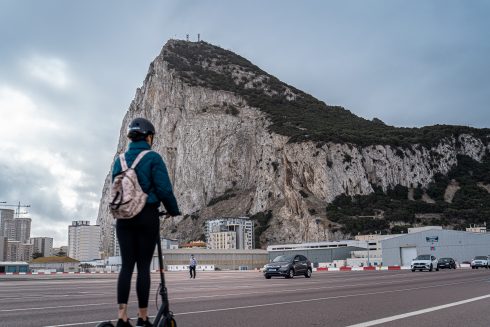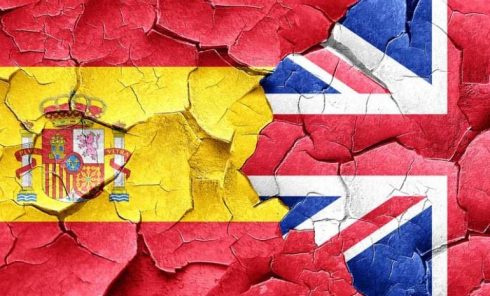THE government of Gibraltar has warned that the fluid border with Spain could come to an end in November as Brexit talks stall.
With 15,000 people crossing the border each day, ease of movement is crucial to the economic and social fabric of the Rock.
But two new Schengen border control systems set to come into force could scupper that fluidity.
Both the EES (Entry/Exit System) and ETIAS (European Travel Information and Authorisation System) are slated to come into force in November, before a post-Brexit deal is expected to be agreed.

The EES will track everyone entering and exiting the Schengen zone, while the ETIAS authorises visa-exempt travellers before they travel.
Spanish border forces have already begun installing the necessary scanners and infrastructure, according to the government.
Meanwhile Gibraltar ‘would enhance its own border control infrastructure’ in the event Brexit negotiations fail.
“As the Government of Gibraltar prepares for all eventualities, including a non-negotiated outcome (NNO), the public should note that Gibraltar would, in the event of a deal with the EU not being reached, enhance its own border control infrastructure providing for the use of e-gates and automated systems which would also process biometric data as is becoming customary at borders across the globe,” the government said in a statement.
With barriers growing up on both sides of the border, it would put an end to the relaxed approach to border control currently in effect.
Gibraltarians and any other Brits on the Rock would then be required to meet strict Schengen requirements to enter Spain, like any citizen of a third country.
They include providing proof of accommodation and return to Gibraltar, as well as having enough money in the bank during the stay.
Visitors will also need to prove they are not overstaying the 90-in-180 day rule and also show the €7 ETIAS permission needed to enter the EU.
The permission will require travellers to scan their passports and give biometric data including fingerprints or pictures of their face.
Biometric data will only be taken the first time a traveller crosses a Schengen border.
For drivers, the system can scan up to four passengers per car, which could provoke long waits at the border.
Click here to read more Gibraltar News from The Olive Press.









The introduction of EES also has to be a concern to British citizens who do not possess biometric evidence of residence in Spain. This includes protectees under the Brexit Withdrawal Agreement who do not have a third country residence card (TiE) just the original green certificate. We urge everyone in this situation to get a TiE asap. We have asked the European Commission to launch a publicity campaign about the ins and outs of EES and ETIAS. And we also hope that the Spanish authorities fulfill their responsibilities in this respect.
Nigel Aston
President EuroCitizens
Nothing surprising about that almost certain outcome (first hard border than no deal).
The belief that the Spanish Government ( of whichever flavour) would hesitate to sacrifice the future of about 14k daily workers (mostly Spanish) or indeed would relinquish its claims of sovereignty is at best candid if not naive.
Lengthy negotiations, another sign of No deal, shrouded in secrecy and communicated in a verbose, pompous and meaningless jargon (shared prosperity, constructive, productive, almost there, etc) were a clear sign.
Spain played for time and quite frankly outsmarted Gibraltar and the UK.
Gibraltar should face the reality and use the November EES as part of its contingency plan and open its doors to Easter European and make the Immigration CSRO more responsive.
I believe that the territory will survive, but not with the current mindset of politicians and bureaucrats.